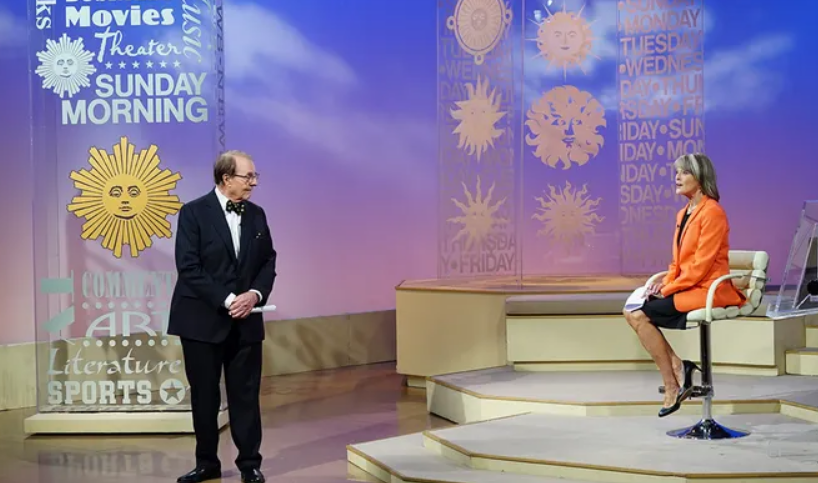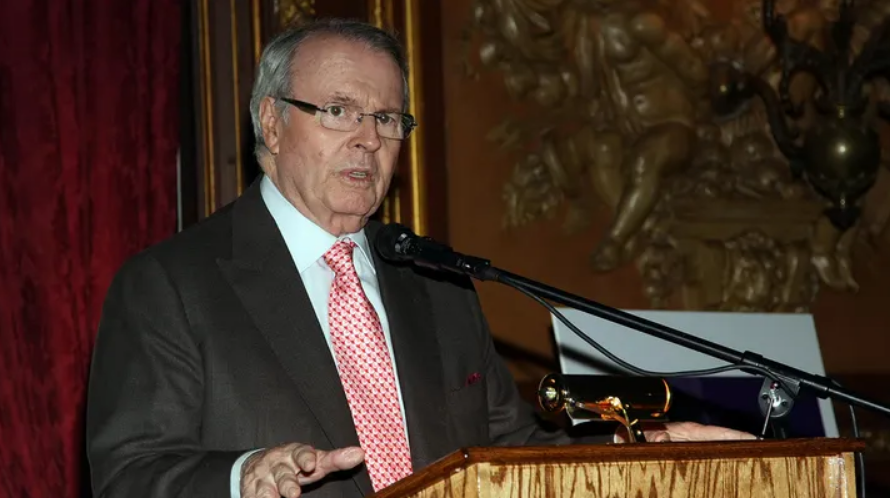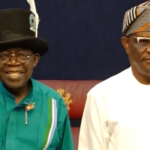A sad but beautiful tune of life, Charles Osgood, the respected CBS newsman and familiar face of “Sunday Morning,” has left us at 91. His career, spanning almost five decades, has left an enduring mark on how we view news on TV.
His family shared that dementia was the reason for his passing, marking the end of a journey that started on January 8, 1933, in New York City. Even though he’s gone, his legacy lives on in the hearts of many who welcomed him into their homes every Sunday.
Osgood spent an incredible 45 years at CBS News. He was the face of “CBS Sunday Morning” for 22 years, guiding it to its highest ratings in thirty years and winning three Daytime Emmy Awards for being an outstanding morning program.

Known for his thoughtful interviews with famous people like Julia Child, Keith Haring, Andrew Wyeth, Louise Nevelson, and Sting, Osgood brought his love for poetry and music into “Sunday Morning.” His interviews weren’t just informative; they were like a performance, a dance of words and feelings.
Besides being a newsman, Osgood was a talented musician. He played the piano, organ, banjo, and violin. He wasn’t just a journalist but a composer, lyricist, and performer. He even collaborated with famous orchestras like The New York Pops, The Boston Pops, and The Mormon Tabernacle Choir.
Rand Morrison, the executive producer of “Sunday Morning,” described Osgood as one of a kind. Jane Pauley, who took over from Osgood, said watching him work was like a masterclass in communication.

To honor Osgood, “CBS News Sunday Morning” plans a special broadcast on January 28, 2024, celebrating the man who made Sundays more than just a day; he made them a celebration of life.
Charles Osgood, born Charles Osgood Wood III, started at Fordham University in 1954, where he discovered his love for radio. Radio legends like Edward R. Murrow and Lowell Thomas influenced his early years.
Osgood had a unique report style, using short words, sentences, and paragraphs. He added humor and creativity with rhymed commentaries, making news more engaging.
Outside the newsroom, Osgood narrated Dr. Seuss’ “Horton Hears a Who” and wrote several books showcasing his wit. Survived by his wife, Jean Crafton, five children, a sister, and a brother, Osgood leaves a legacy beyond journalism. His family thanked everyone for welcoming him into their homes every Sunday, saying, “He’ll see you on the radio.”


